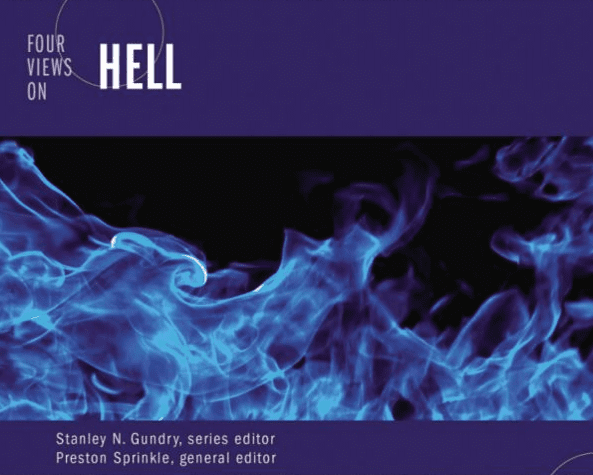 What do you believe about hell? And one more: Where did you get your belief about hell? There are a number of typical beliefs about hell by people today, and one can read about these in Edward Fudge’s new accessible study called Hell: A Final Word. Here is Ed Fudge’s list of what most seem to believe:
What do you believe about hell? And one more: Where did you get your belief about hell? There are a number of typical beliefs about hell by people today, and one can read about these in Edward Fudge’s new accessible study called Hell: A Final Word. Here is Ed Fudge’s list of what most seem to believe:
1. Hell is experienced now in the results of bad decisions or injustices.
2. God is good; a good God and eternal conscious punishment in hell are incompatible. Therefore, hell must be diminished.
3. Hell is the just deserve for the wicked, like Hitler.
4. What one person thinks is hell is not hell for another; hell is too dependent on personal perception.
5. Hell is a ramped up expression for death; after death we are no more.
Where do folks get such views of hell? How do we decide? One person says “It’s speculation.” Which is fine unless one thinks what the Bible says, interpreted as it must be, about hell is what we are to believe. Then it’s not necessarily speculation.
Question for the day: What was hell like in the preaching/teaching of your church? your pastors? your parents?
Some observations for some early chapters — and they are short chps — in Fudge’s book.
1. Many people have responded to the gospel because of hell-fire and damnation preaching. For some such people — not all — hell becomes an important element in the gospel. Hence, some who pushback against my King Jesus Gospel are actually saying they think hell has to be involved or the edge for decision is lost.
2. Most people have not studied the “history of hell” (or the history of how hell has been articulated) in the history of the church, and do not know that there are four major contributing streams to what many today believe about hell (as eternal conscious punishment): ancient Greek Platonism/NeoPlatonism and philosophies, Dante’s famous sections on hell, Jonathan Edwards and other revivalist teachings about hell, and Bunyan or spiritual formation writers’ perceptions/teachings about hell. Add to this what you learned from parents and pastors or friends, and you’ve got what most people believe today.
3. Fudge sees five major themes: hell is real (not just fiction), hell is bad (real bad), hell is punishment, hell is separation from God, and hell is eternal. The issue for Ed Fudge is what kind of eternal, and here the issue is that most have believed hell is eternal and conscious. Where do these major ideas come from?
4. Most people have not studied what the Bible says in its context, which is what Ed Fudge has been doing decades.
5. Some of the most respected people in history have firm views of hell, graphically firm, and those ideas may not be as biblical as their authority extends: Fudge looks at two statements, one by Charles Spurgeon and one by John Gerstner.
6. Some have penetrating issues with hell, including the character of God that comes to the fore/surface in one’s view of hell — whatever one’s view of hell. Rob Bell, folks, wrote a book about God’s character as much as he did about hell.
Ed Fudge has put all of what we say to a test and to the text of the Bible; he has constructed a biblically-constructed view of hell; Ed Fudge believes in what is traditionally called “annhiliationism”: hell is eternal, but eternal here means ceasing to exist. Join us in this series of considerations about hell.











